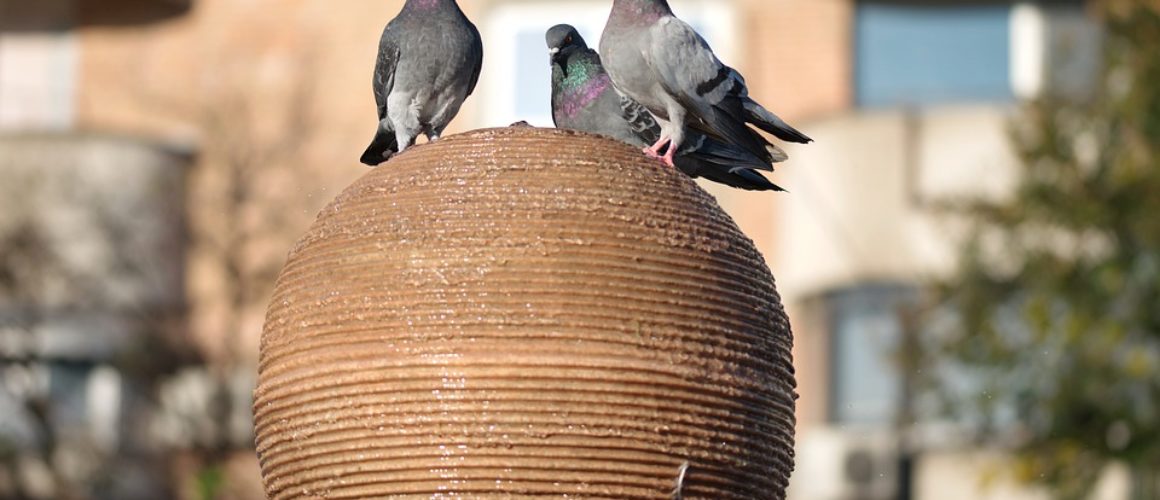Does rat poison kill birds?
Rats are arguably one of the most disliked pests in the UK, known for carrying and spreading disease, stealing food and being vicious when feeling threatened. Their reputation precedes them, but in recent years we have seen a similar dislike emerge towards birds, particularly pigeons that are now dubbed the ‘rats of the sky’.
While many people have no issue using rat poison to deal with unwanted rats, some now also use this poison to deal with pest birds such as pigeons and gulls. In this article, we will explore if rat poison harms birds, the legality of using such methods, and other more effective deterrents to keep birds at bay.
Does rat poison kill birds?
Whether you are using rat poison to deal with a rat infestation or are using it as a bird deterrent method, it is essential to note that it is harmful to bird species. Studies have shown that different birds vary hugely in their susceptibility to rat poison, meaning that a dose that kills one species might have little effect on another. Although you may be attempting to use rat poison to control your pest bird population of pigeons, it is often predatory birds such as eagles that will be harmed and even killed by rat poison.
Ultimately, rat poison is a counterintuitive method of controlling pest bird populations as not only is it more likely to harm non-pest bird species, but you could risk harming the very birds that help keep pest birds away.
Is it illegal to kill birds?
Put simply, yes, it is illegal to kill birds in the UK. The Wildlife and Countryside Act 1981 part 1 makes it unlawful to kill any wild birds intentionally. There are only a few exceptions to this act that allow birds to be killed legally. For instance, under the terms of General Licences, a landowner or occupier may kill so-called pest species under certain circumstances and using specific methods. Wild birds may also be legally killed if necessary to preserve public health or air safety, prevent the spread of disease, or prevent severe damage to livestock, crops, vegetables, fruit, growing timber, or fisheries.
Several other exceptions permit the killing of wild birds, which can be found on The Royal Society for the Protection of Birds website.
What methods can you use to deter birds?
There are more effective, humane and most importantly, legal ways of deterring birds from nesting on your property.
Removing access to food
The two key things birds will look for when finding a place to nest is food and shelter. Therefore, the first step you should take in deterring birds is removing any sources of food in the area. This could mean investing in more secure bins and ensuring nothing edible is left open around your property.
Audio Visual Deterrents
Bird proofing specialists can help install laser and acoustic scarers in areas where you have noticed an increase in birds. These deterrents are often motion activated and will instantly scare away any birds that come near to your property, encouraging them to nest elsewhere.
Structural alterations
Making physical alterations to your property, such as adding bird spikes, netting, parallel wires, and bird gels, are humane and effective ways of keeping birds from landing on your property. These deterrents act as a safe physical barrier that lets birds know this isn’t a place to nest.
Maintaining your Property
Birds will often nest in roofs and guttering because this is where they can find building materials for a nest. If your gutters aren’t regularly maintained and cleaned, dirt and debris will build-up, providing birds with the perfect materials to build a nest. You may also find that if your roof tiles are cracked or loose, birds will crawl in between them and nest there. Keeping these areas clean and clear will help to keep birds away.
Falconry deterrents
In cases where your property is too large to implement other deterrent methods effectively, falconry deterrents can be used with the help of professional pest control teams. By allowing predatory birds such as falcons to fly through a site, pest birds will become instantly aware that the area is no longer safe and will move further afield.
If you are struggling to manage pest birds and would like to learn more about our Bird Control Solution services, please don’t hesitate to contact us today on 0151 345 6854 or email us at info@urbanhawks.co.uk.

